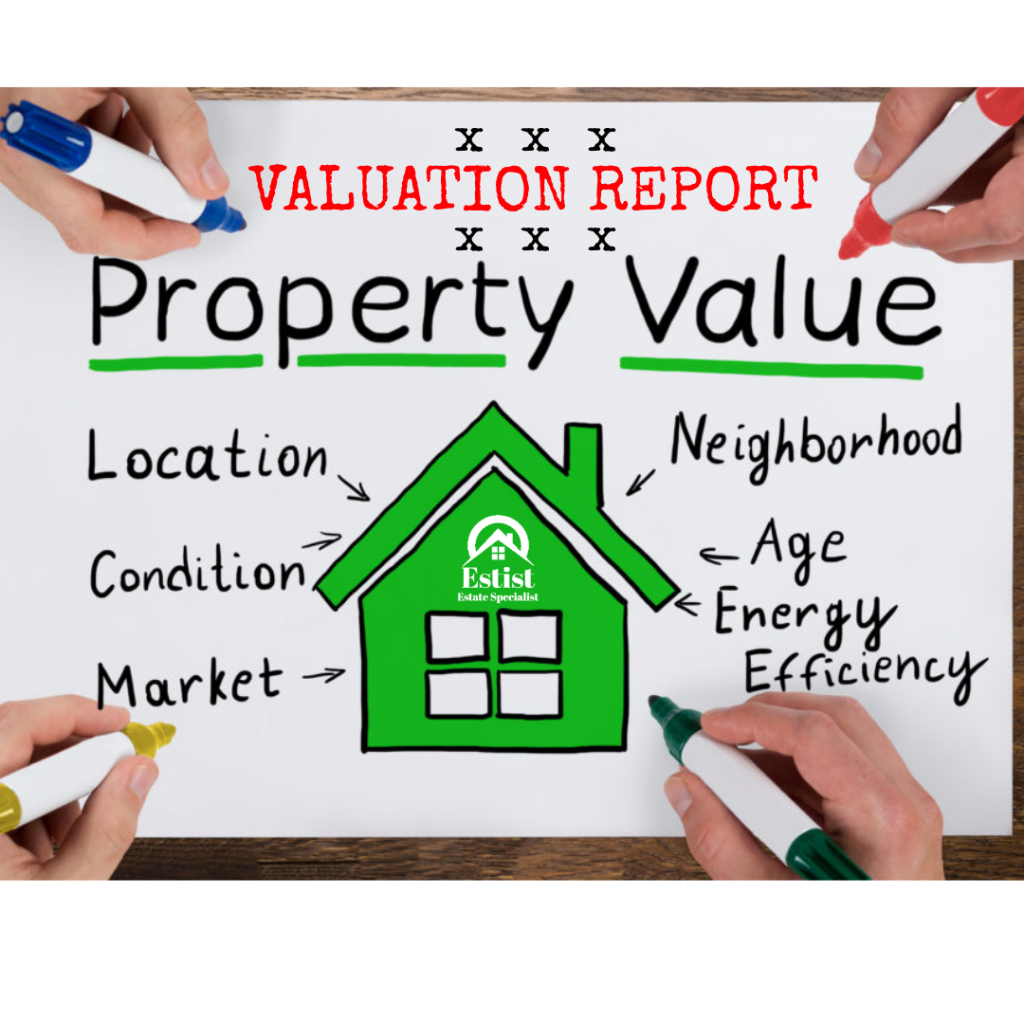Home » 2023
Yearly Archives: 2023
Introduction About Owners Corporation Property Valuation
An Owners Corporation Property Valuation may engage a valuer to determine the value of the property for a number of reasons, such as :
– to provide information for financial reporting purposes
– to calculate levies
– to facilitate the sale or purchase of units in the owner’s corporation
– to assist in the insurance of the property.
The value of an Owners Corporation Property Valuation is generally determined by reference to the sale prices of similar properties in the same area.

However, there are a number of other factors that may be taken into account, such as :
– the size, age and condition of the property
– the location of the property
– the amenities and services available to residents
– the demand for units in the owner’s corporation.
An Owners Corporation Property Valuation should consider engaging a valuer if it needs to obtain an accurate estimate of the value of its property.
The Different Types Of Wealth Management
Wealth management is the process of making and preserving your wealth. It includes a wide range of financial services and products, including investment management, tax planning, estate planning, and insurance.
There are four main types of wealth management:
1. Asset management
Asset management is the process of investing your money in a way that will grow your wealth over time. This includes choosing the right investments, monitoring your portfolio, and rebalancing as needed.
2. Tax Planning
Tax planning is the process of minimizing your tax liability. This includes strategies like tax-loss harvesting and investing in tax-advantaged accounts.
3. Estate Planning
Estate planning is the process of making sure your Accountancy Adelaide assets are distributed according to your wishes after you die. This includes creating a will, setting up trusts, and choosing beneficiaries.
4. Insurance
Insurance is a way to protect your assets from loss. This includes things like life insurance, disability insurance, and long-term care insurance.
The Different Approaches to Wealth Management
The term “wealth management” is used to describe a comprehensive approach to managing your finances.
It includes everything from budgeting and investing to estate planning and insurance.
Wealth management is about more than just growing your assets – it’s about protecting your wealth and ensuring that it lasts for generations to come.
There are many different approaches to wealth management, and the right strategy for you will depend on your unique circumstances. Here are five of the most common wealth management approaches:
1. Asset Allocation
Asset allocation is the process of dividing your assets among different asset classes, such as stocks, bonds, and cash. The goal of asset allocation is to balance risk and return, and to help you reach your financial goals.
2. Portfolio Management
Portfolio management is the process of creating and managing a portfolio of investments. The goal of portfolio management is to achieve the best possible return on investment while taking into account your risk tolerance.

3. Tax Planning
Tax planning is the process of minimizing your tax liability. Wealth management strategies such as asset allocation and portfolio management can be used to minimize your taxes.
4. Estate Planning
Estate planning is the process of preserving and transferring your wealth. Estate planning can help you minimize taxes, protect your assets, and ensure that your wealth is distributed according to your wishes.
5. Retirement Planning
Retirement planning is the process of preparing for your financial needs during retirement. Retirement planning includes saving for retirement, investing for retirement, and planning for retirement income.
The Different Methods Of Cash Flow Management
When it comes to managing your finances, there are a number of different methods you can use to keep your cash flow under control. Here are six of the most popular methods used by businesses and individuals alike:
1. Budgeting
Budgeting is one of the most basic and effective cash flow management techniques. By creating a budget and sticking to it, you can ensure that your income and expenses are balanced and that you have enough money to cover your bills.
2. Accounts Receivable Management
If your business relies on customers paying their invoices on time, then Accounts Receivable Management is a must.
By staying on top of your receivables and implementing policies and procedures to encourage prompt payment, you can keep your cash flow healthy.
3. Accounts Payable Management
Similarly, if your business has to make regular payments to suppliers, then Accounts Payable Management is key.
By staying on top of your payables and taking advantage of early payment discounts where possible, you can keep your cash flow in good shape.
4. Inventory Management
If your business holds inventory, then effective Nitschke Nanncarrow Inventory Management is essential for maintaining a healthy cash flow.
By keeping your inventory levels low and using just-in-time ordering methods, you can avoid tying up too much of your cash in stock.
5. Cash Flow forecasting
Cash Flow forecasting is a technique that can be used to predict future cash flow trends. By regularly forecasting your cash flow, you can identify potential problems and take steps to avoid them.
6. Credit Management
If your business offers credit to customers, then Credit Management is an important cash flow management tool.
By carefully monitoring your customers’ creditworthiness and setting credit limits, you can reduce the risk of bad debts and keep your cash flow healthy.
blue mountains Valuers

1. Property valuer in the Blue Mountains
Looking for a property valuer in the Blue Mountains? Look no further than ValuFirst. We are a team of experienced and qualified property valuers who are passionate about providing our clients with the best possible service. We have a deep understanding of the Blue Mountains property market and can provide you with an accurate and comprehensive valuation report for your property.
Whether you are looking to buy, sell, or lease a property in the Blue Mountains, we can help you get the best possible price. We can also provide you with advice on how to maximise the value of your property. If you are looking to buy a property, we can help you negotiate the best possible price. If you are looking to sell, we can help you find the right buyer and get the best possible price for your property.
If you are looking to lease a property, we can help you find the right tenant and get the best possible rent. We can also provide you with advice on how to protect your investment and maximise the value of your property. Valuer blue mountains
We offer a free, no obligation consultation to all our clients. Contact us today to discuss your requirements.
2. Property valuation in the Blue Mountains
If you are thinking of selling your property in the Blue Mountains, it is important to get a realistic idea of its value. A property valuer can give you an accurate estimate of your home’s worth, based on a number of factors including its location, size, condition and recent sales in the area.
The value of a property can vary greatly depending on its location. For example, a home in Katoomba will be worth more than a similar property in Blackheath. This is because Katoomba is a more desirable location, being closer to major attractions such as the Three Sisters and the Scenic World Skyway.
The size of a property also has an impact on its value. A larger home will obviously be worth more than a smaller one, but there is also a per square metre rate that applies. This means that a home with a larger floor area will be worth more per square metre than a smaller home.
Property Valuer blue mountains

1. Property Valuer blue mountains – what to expect
As a property valuer, there are a few things you can expect when working in the Blue Mountains. First, the scenery is absolutely breathtaking. From the snow-capped mountains to the stunning blue waters of the Great Lakes, the Blue Mountains is a truly beautiful place to work.
Second, the people are friendly and welcoming. The community is close-knit and everyone is always willing to help out.
Third, the work can be challenging at times. The terrain can be tough to navigate and the weather can be unpredictable. However, the rewards are definitely worth it.
As a property valuer in the Blue Mountains, you can expect to have an incredibly rewarding career. The scenery is breathtaking, the people are friendly, and the work can be challenging. If you’re looking for a truly unique and rewarding career, then the Blue Mountains is the place for you.
2. Property Valuation blue mountains – the process
A property valuation is an estimate of the current Valuers blue mountains market value of a property. It is generally used by potential buyers and sellers as a guide to help them determine how much to offer or ask for a property. A property valuation can also be used by banks and other financial institutions to assess the value of a property for the purposes of offering a loan.
There are a number of different methods that can be used to value a property, but the most common is the comparative market analysis (CMA). This involves looking at similar properties that have recently sold in the same area and using these sales prices to estimate the value of the property in question.
Another method that can be used, particularly for older or more unique properties, is the replacement cost method. This involves estimating the cost of rebuilding the property from scratch, minus any depreciation.
Once a property has been valued, the valuer will prepare a report which will be used by the potential buyer or seller to help them reach a decision on price. If you are thinking of buying or selling a property, it is a good idea to get a professional valuation from a qualified valuer.
House Valuer lithgow
A house valuer is a professional who House Valuer lithgow provides an estimate of the value of a property. This estimate can be used by potential buyers, sellers, landlords, and tenants to negotiate the price of a property. A house valuer may also be known as a real estate appraiser, property valuer, or land valuer.

A house valuer will consider a number of factors when estimating the value of a property. These factors can include the location of the property, the condition of the property, the size of the property, and the amenities and features of the property. The house valuer will also take into account recent sales of similar properties in the area to arrive at an estimate of the value of the property.
If you are considering buying, selling, or renting a property, it is a good idea to get a house valuation from a professional valuer. This will give you an idea of the value of the property and help you to negotiate the best possible price.
